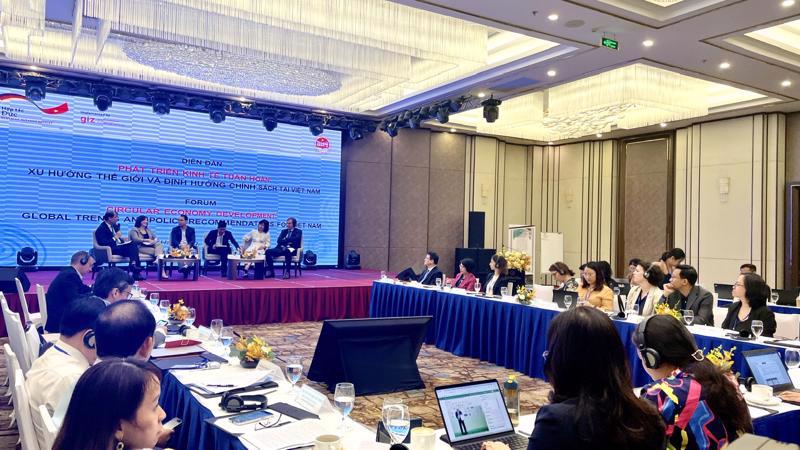Vietnam has made significant achievements in developing a circular economy. However, there are still shortcomings and a considerable gap compared to countries in the region and the world, particularly those in the EU, said Dr. Michaela Baur, Vietnam Country Director of the German Agency for International Cooperation (GIZ)
Each country and sector requires a circular economy policy tailored to the specific realities of their economy, she told the forum “Circular Economy Development: Global Trends and Policy Recommendations for Vietnam” held on September 12.
The event was organized by the Ministry of Planning and Investment with support from the GIZ.
As a manufacturing nation and significant trade partner of Germany and the EU, Vietnam, with a dynamic private sector under the leadership and strong determination of its Government, has immense potential to become a hub for green production, recycling, repairing, and redesigning products and services in the global supply chain, according to Ms. Baur.
Addressing the forum, Deputy Minister of Planning and Investment Tran Quoc Phuong noted that policies related to the circular economy remain fragmented and inconsistent across central and local levels, hindering implementation. He also emphasized a shortage of skilled manpower and limited access to resources as significant challenges in developing a circular economy.
Vice President of the Center Institute for Economic Management, Nguyen Hoa Cuong, said "Initially, we have formed new markets for environmental goods and services, secondary materials, eco-friendly products, green jobs, and especially the capital market for the circular economy.”
According to Mr. Cuong, as of June 30, 2024, 50 credit institutions reported outstanding green credit of VND650.3 trillion ($26.5 billion), of which renewable energy and clean energy accounted for over 45% and green agriculture accounted for nearly 30%. Vietnam has also promoted the emergence and development of practical circular economy initiatives/models in agriculture, industry and energy, and trade and services.
Deputy Minister Phuong proposed six key tasks to effectively promote the future development of the circular economy: complete the policy and legal framework, strengthen institutional foundations, deepen international integration, develop a skilled workforce, promote public awareness, and enhance implementation mechanisms









 Google translate
Google translate